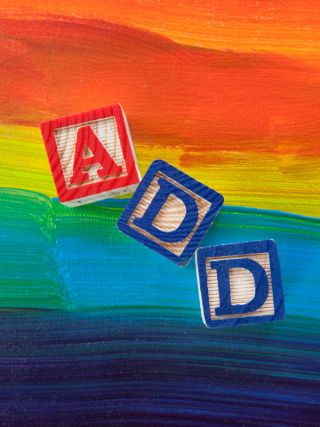
As a child psychiatrist, I’m used to calling a pharmacy, giving them a script and I'm done.
Recently, the strangest thing’s been happening. I'm still calling, but now I find myself on the line, informing yet another pharmacist of a new medicinal for Attention Deficit Disorder.
It's like I'm letting them in on a secret.
What's going on here is a strange mix of big Pharma, small Pharma and new innovation.
New ADD Treatment:
The new medicine for ADHD/ADD is called Vayarin, and it’s a uniquely conjugated molecule of a phospholipid, specifically phosphatidylserine enriched with the omega-3 fatty acid eicosapentaenoic acid (EPA), that apparently transverses the blood brain barrier.
Why is this important?
The Brain is Protected:
The human brain is vulnerable.
The skull, dura, arachnoid and pia mater protect the brain physically, while the cerebral-spinal fluid (CFS) holds it like a precious gift packaged in a hard container, floating within layers of tissue.
The brain is also protected by something called the blood brain barrier, which keeps nutrients in - and toxins out.
But, not all nutrients get through the blood brain barrier easily, and omega-3 fatty acids fall into this category.
We all know about the effects of omega-3 on the heart, the brain and even our skin. It's a healthy fatty acid. What's less known is that it's not water-soluble and has difficulty getting to the brain.
Omega-3 is an essential nutrient for the brain, so the task of giving the brain greater access to Omega-3 makes sense. A small pharmaceutical company designed a form of omega-3 attached to phosphatidylserine which appears to do the job.
Vayarin has a good safety record, it’s been approved by the FDA as a Medical Food, plus it’s been shown to be effective in double-blind studies of Attention Deficit Disorder.
Standard Treatments:
A number of approaches to Attention Deficit Hyperactivity Disorder are helpful, with stimulants serving as the most effective and well-studied treatment over the years. In addition, medications such as Clonidine, Atomoxetine and even tricyclics have some proven effect.
Adjunctive psychotherapy can be invaluable in the treatment of ADD and ADHD, probably because of the co-morbidity of anxiety, learning and emotional dysregulation issues.
Like many clincians today, I'm interested in Integrative Medicine and alternative treatments to ADD/ADHD. Most have proved disappointing or difficult to administrate.
Vayarin may be different.
A Medical Food:
Vayarin is an important addition to ADD/ADHD treatment because it's a medical food, not a formal pharmaceutical. It bathes the brain in an essential nutrient, and it can be quite helpful.
If you are looking for a different approach, this Omega-3 variant may prove interesting.
Stimulants vs. Vayarin:
Unlike common ADD/ADHD treatments, Vayarin takes time to kick in - as much as ninety days. Stimulants, for instance, work immediately and quite effectively, but there are risks involved like increased blood pressure, appetite suppression and sleeplessness, among others. Vayarin, on the other hand, acts like a nutrient by making changes over time, and its probably safer because it mirrors the normal metabolism of the body. It's not uncommon to use both treatments co-jointly, which has led to a lower dose of stimulant for a number of my patients.
So, why do I find myself explaining this to the pharmacists?
The answer is simple. Vayarin is manufactured by a tiny company, which does not have the promotional reach of the big pharmacology companies. If a drug is not massively marketed, sometimes it’s as if it doesn’t exist.
Worth a Try:
Vayarin is inexpensive, logical and worth a try. It is FDA regulated requiring a prescription.
The politics of all this is out of my pay grade. But, having seen hundreds, if not, thousands of kids with Attention Deficit Disorder, I’m always looking for something new.
Here’s what you need to know:
- ADHD seems to be associated with lipid imbalance
- Vayarin is a conjugated molecule of a phospholipid (phosphatidylserine) enriched with the Omega-3 Fatty Acid EPA which appears to help ADHD symptoms.
- Vayarin seems to work; perhaps not as profoundly as stimulants, but with less potential side effects.
- Since Vayarin is essentially a nutrient, you have to take it with a sense of patience. It can take time to kick in (30-90 days).
- It’s not uncommon to prescribe Vayarin and still treat with a stimulant (hopefully at a lower dose).
- Double blind studies have shown efficacy and safety of Vayarin as a dietary approach to Attention Deficit Hyperactivity Disorder.
Absent some improbable announcement that Vayarin is a problem, we child psychiatrists and pediatricians will be figuring out how to best use this new medical food for some time to come.
Next time I call this script into a pharmacy, I hope I won’t have to explain what I’m doing yet again. It’s getting old.
Hope this piece helps.
----------------------------------------------------
Intelligent Divorce: For a Free Book on Divorce!
- How to Tell the Children
- A Child's Bill of Rights
- & More...
Intelligent Divorce Course: www.TheIntelligentDivorce.net
Florida Parenting Course: www.FamilyStabilizationCourse.com
The Intelligent Divorce - Taking Care of Your Children
he Intelligent Divorce- Taking Care of Yourself




